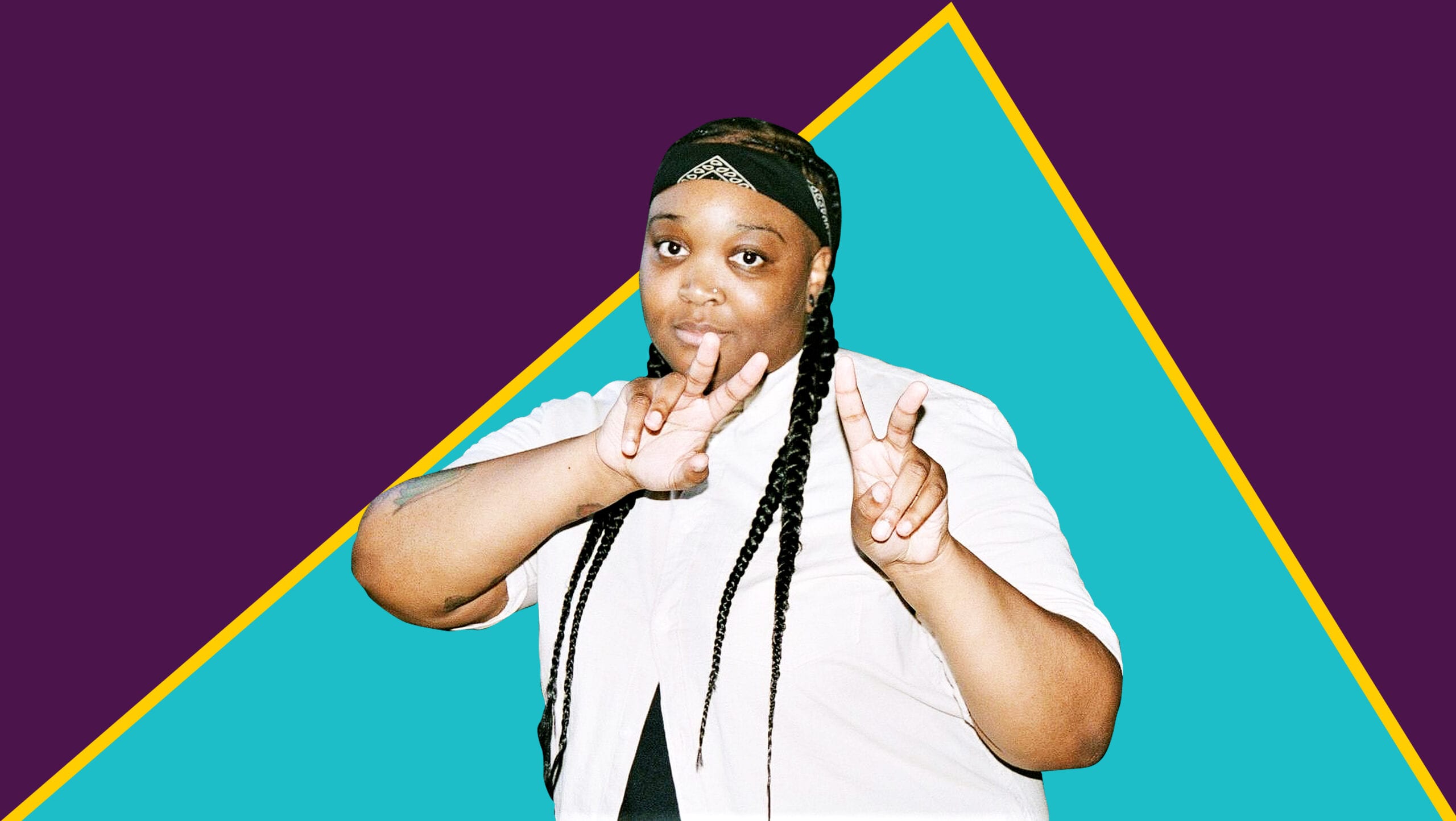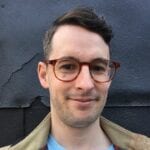DijahSB turns vulnerabilities into strengths. The lyrics of the Toronto rapper’s latest release, 2020 the Album, are packed with punchlines and pop culture references that twist into glimpses of their personal life. These subjects include a comedian’s mid-’80s novelty single (“Eddie Murphy ’cause my girl likes to party all the time”), or swipes at the divisive rap artist Bhad Bhabie, who first gained attention as a guest on Dr. Phil (“Catch me outside, how about that? / Things you can get away with when you’re not Black.”)
Yet it’s when DijahSB opens up about their own struggles that they connect with listeners on a deeper level. Songs like “Broke Boi Anthem” and “I’ll Pay You Back On Friday” are refreshingly honest about their troubles covering phone bills or car payments, while “Frontin’ Like Pharrell” finds the 26-year-old MC poking fun at people around them who pretend to have money. Between tweets about basketball and their most hated sandwich ingredients, they regularly talk about the difficulties of getting out of bed, offering a candid, relatable look at the day-to-day experiences of an independent artist.
“I want to be a voice for the voiceless, because people don’t always have the capacity or know how to express themselves when they’re going through something hard.”
“People have told me they appreciate my willingness to speak about things like my anxiety or depression,” says DijahSB, taking a break in the studio while recording their latest single. “I want to be a voice for the voiceless, because people don’t always have the capacity or know how to express themselves when they’re going through something hard. I know that I’m good at it, and I’m okay with being vulnerable and naked.”
DijahSB got started in music 10 years ago as one half of the duo Class of 93, performing at that time as Kzaraw. Their new artist name came from Nike SBs, the sneakers they’ve worn since high school as a way to stand out from everyone sporting Jordans or Air Force 1s. The sound they chose for 2020 the Album—produced by forward-thinking U.K. beatmakers like Loelash and Reon Vangèr—is bright, sleek and synthy, a contrast to Class of 93’s old-school hip-hop.
“I told myself at the beginning of this year that my goal was to make people dance,” DijahSB says. “Really, I’m just going for upbeat, happy stuff. If you’ve listened to my music before, it used to be kind of mellow and melodramatic, so I decided to make it more uplifting. Even though the content can sometimes go deep, it’s still something you can dance to.”
In an interview with The Come Up Show podcast last year, DijahSB discussed how they never like to enter the studio unprepared. They prefer to write and practice beforehand rather than scrambling to create freestyle songs with the clock ticking. “That’s really a waste of time,” DijahSB says. “I want to know exactly the sound I’m trying to capture before I record a take.”
1 year ago today I hopped on stage with Jay Electronica and it was one of the craziest moments of my life thus far pic.twitter.com/HU2ElNLNGq
— DijahSB (@DijahSB) February 3, 2019
This preparation played strongly in their favour when they were invited onstage at a Toronto performance by one of their heroes, Jay Electronica. Quickly glancing at pre-written words on their phone, DijahSB took the mic and rapped with an effortless flow, earning a chorus of cheers and a rapturous response from the headliner.
“I like to have a library of verses ready for anybody who wants to try me,” DijahSB says proudly. “I’m not really a perfectionist, but I just want to make sure I’m not saying anything cringey or corny. That’s one of the things you won’t hear from me. I want what I’m saying to hold weight.”
DijahSB is equally frank about the issues faced by musicians working without industry support. While Toronto is undoubtedly filled with world-class talent, they believe it has nowhere near the infrastructure for hip-hop and R&B as other big musical cities, such as Atlanta. 2020 the Album was released with the help of a crowdfunding campaign, which proves the strength of the rapper’s online following, but also reveals how tough it can be to get projects off the ground.
“There aren’t enough labels pushing out new talent, giving us the means to create and just create, instead of having to work a part-time job to afford to come to the studio,” DijahSB says. “It costs a lot to mix and master your stuff. People want to bring up grants, not knowing they take forever to apply for, or that funding is very slim when it comes to hip-hop and R&B artists. It’s tough out here. You just have to invest in yourself, to be honest. That’s the only way to get out.”
https://twitter.com/DijahSB/status/1283180343298650112
Citing Kaytranada and Frank Ocean as queer musical heroes, DijahSB recently came out publicly as non-binary. They say this experience brought comfort to their life, and that they were motivated to reclaim the trauma they experienced in childhood for being different.
“Growing up, I was misgendered because I wore basketball jerseys, sneakers and baggier clothes,” DijahSB says. “I was really into what people would say is boy’s stuff at that time. Realizing that I don’t identify as any gender has allowed me to be more of myself. It had nothing to do with my sexuality or wanting to be a boy. Now I go outside and I wear what I want. I don’t care if you know what gender I am because I’m not any.”
DijahSB’s anxiety still pops up unexpectedly, but they’ve learned to understand when self-care is needed, taking breaks from their part-time job when things are at their worst. “It’s hard because I feel like I’m so close to liberating myself and taking life into my own hands,” they say. “I’d much rather be broke and take care of myself mentally than struggling every day to get out of bed, being unable to do what I want to be doing.”
Lately, DijahSB has been spending time in the studio on their follow-up to 2020 the Album. They describe the sound of their new singles as still upbeat, but more laid-back and autumnal, like “drinking hot chocolate next to a fire.” Focusing on the future, they would love to find a home at a label that can handle the business side, allowing them to focus on what they do best.
“There are so many stupid things that you have to do as an independent artist other than creating your art,” DijahSB says. “It’s hard to do that by yourself. I’ve done so much and it’s been 10 years, so it’s time for me to break through. It’s time for me to become a household name.”


 Why you can trust Xtra
Why you can trust Xtra


